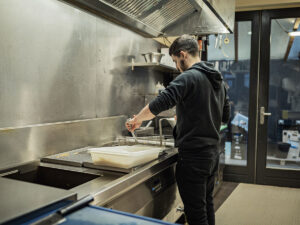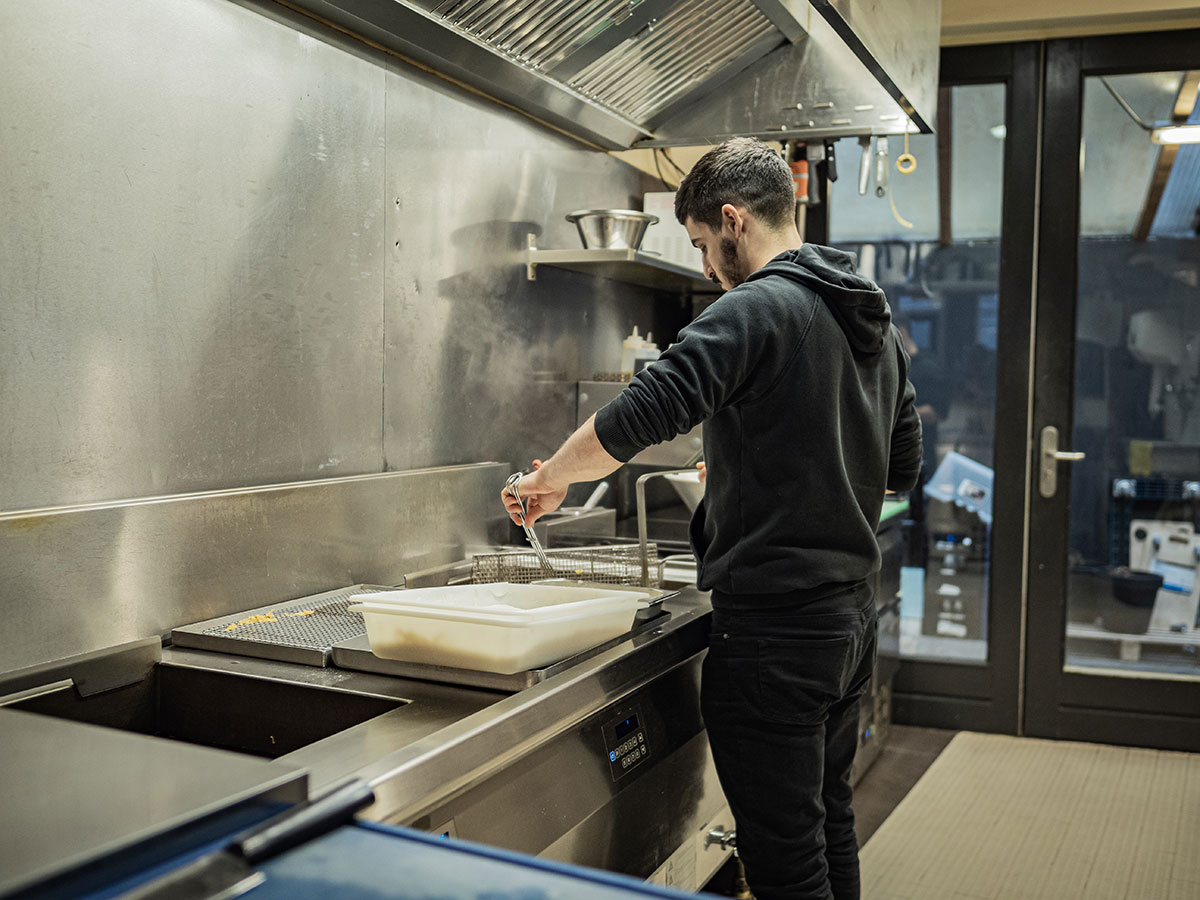Disclaimer: The information on our website is provided for general information purposes only. We make no representations or warranties of any kind, express or implied, about the completeness, accuracy, reliability, suitability or availability with respect to the website or the information contained on our website for any purpose. Any reliance on such information is therefore strictly at your own risk and we are not liable for any damages or losses arising out of or resulting from your reliance on any information contained on our website.
Line cooks are vital contributors in the culinary world. Their primary responsibility is to prepare, cook, and season dishes to meet quality standards. Typically working in a team-oriented kitchen, they are often assigned to specific stations. For example, they may grill, sauté, or prepare cold foods. Additionally, some line cooks work in fine dining restaurants under the guidance and supervision of head chefs or sous chefs. Next, watch a video to learn more about this career field.
How to Become a Line Cook

Line cooks typically have a high school diploma or the equivalent. High school students should take home economics, food science, and business classes. After high school, line cooks may gain knowledge from vocational schools, professional culinary institutes, and colleges. Programs in culinary, vocational, or colleges include courses in cooking techniques, international cuisines, proper and safe handling of utensils, like knives, and other skills. These programs can last from two months until two years. Some line cooks may also start out with entry-level positions and work their way up to become a line cook based on experience.
It is helpful to begin training in as many restaurants as possible to learn basic kitchen skills under the supervision of a chef. This provides an opportunity to gain experience and build up a resume when applying for jobs. Some states require a food handler license to work in a restaurant, but no license is necessary. Check with your state food and licensing board to see if you will need a food handler license and how to obtain one.
Job Description
A line cook’s duties depend on the size and type of place they work. Additionally, they can also be referred to as assistant cooks as they support a chef. Those working in fast food restaurants also work on teams, but the level of skill required is limited. Furthermore, many have developed various cooking techniques and can work effectively under pressure. In fact, their contributions are essential to the seamless operation of the kitchen. Larger restaurants have team line cooks. In this example, each cook is assigned a station for a specific job. Cooks assigned stations are often identified by the station (i.e. grill cook or fry cook).
Line Cooks
A line cook ensures everyone has the necessary equipment and ingredients to make the food at their assigned station. They are expected to be agile and efficient, handling multiple tasks simultaneously while adhering to health and safety standards. Their role is not only about cooking but also encompasses inventory management, stocking and organizing ingredients, and ensuring the freshness of food supplies. This position offers a unique blend of creative and practical skills, as line cooks must often adjust their techniques and presentation styles to align with the culinary direction of the establishment. It’s a role that demands precision, stamina, and a passion for culinary arts, offering an invaluable learning experience and a stepping stone for career growth in the culinary field.
Line cooks use broilers, grills, slicers, grinders, blenders, and sharp knives daily. Therefore, safety precautions are vital. They are responsible for weighing, measuring, and mixing ingredients following the chef’s recipe. A line cook has the task of keeping the work area, dishes, and utensils clean and sanitized. They must also store food and other perishables at the correct temperatures to prevent spoilage and waste.

